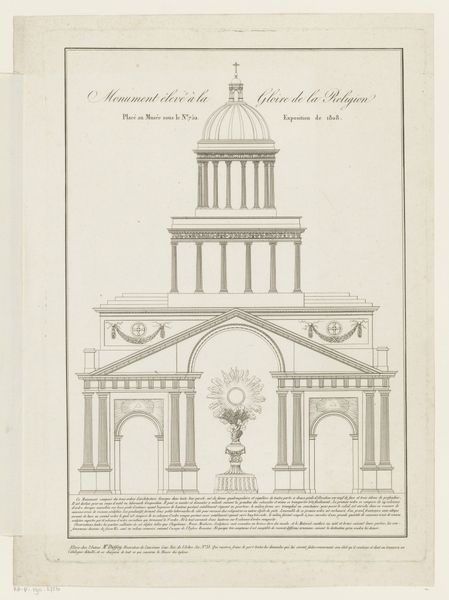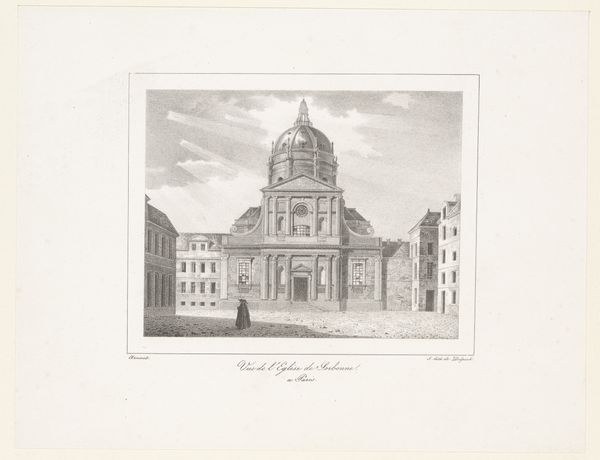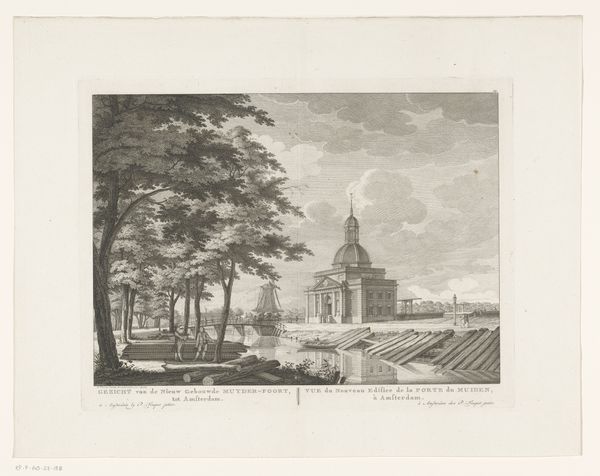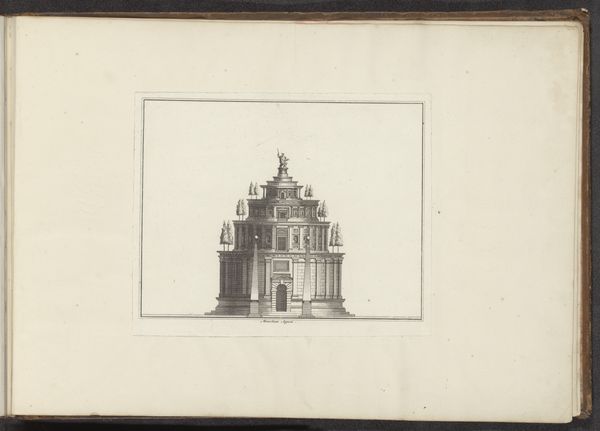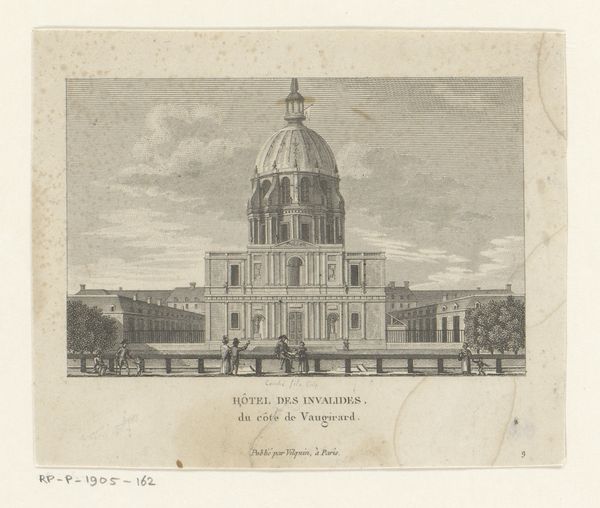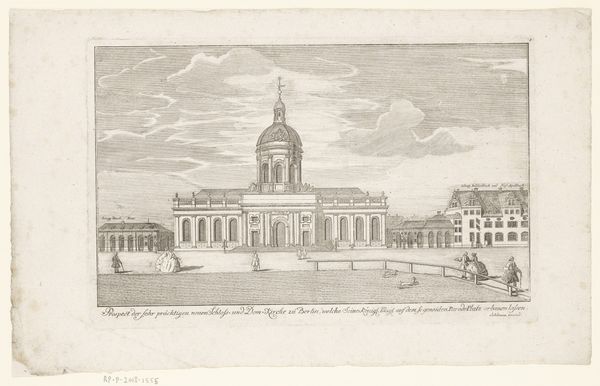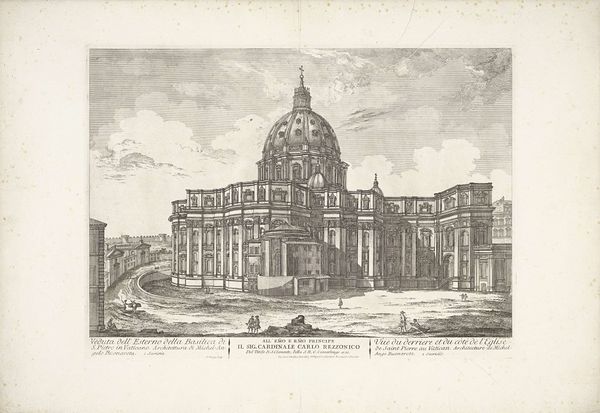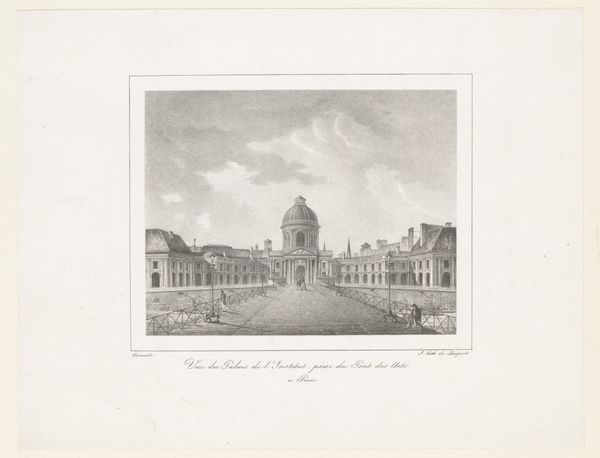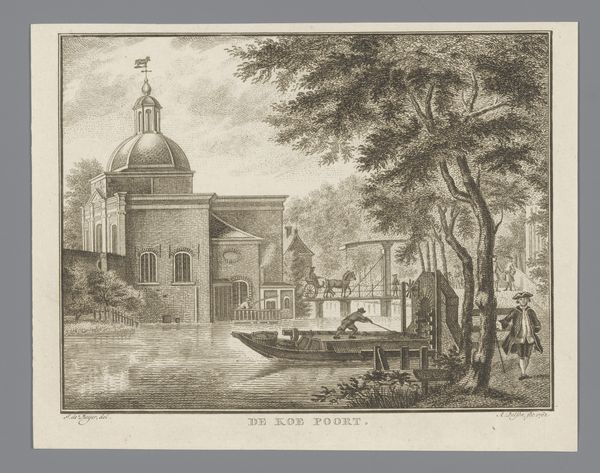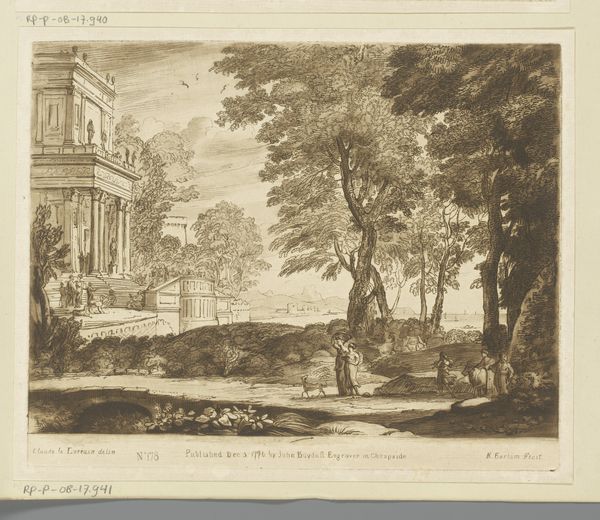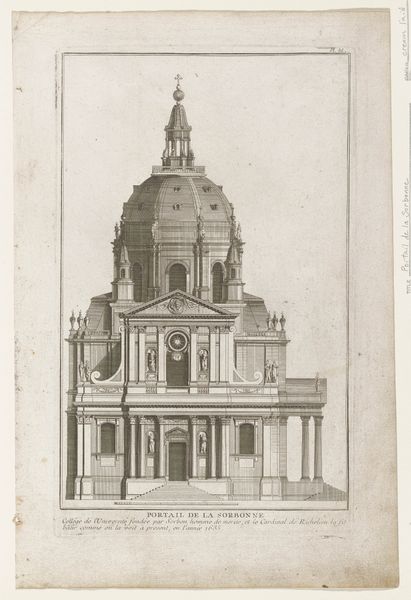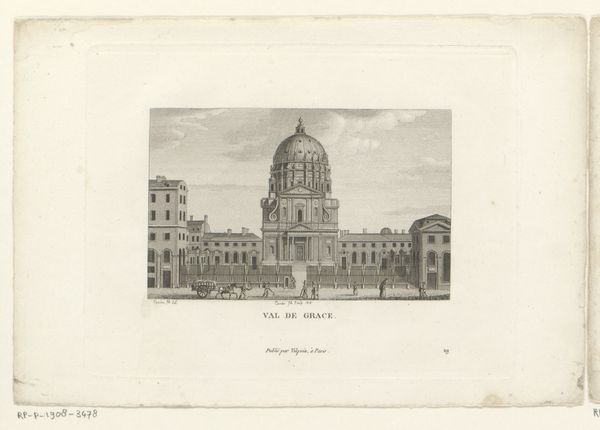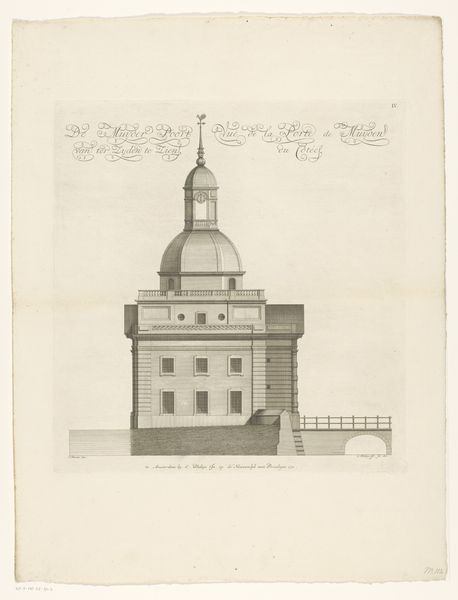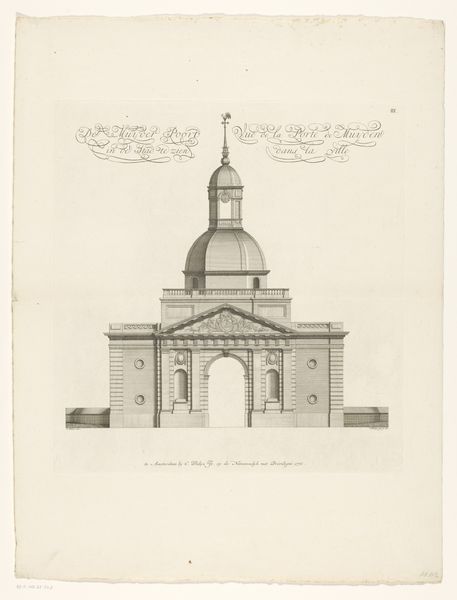
drawing, print, paper, pencil, engraving, architecture
#
drawing
#
neoclacissism
# print
#
pencil sketch
#
landscape
#
classical-realism
#
paper
#
pencil
#
line
#
cityscape
#
pencil work
#
engraving
#
architecture
#
realism
Dimensions: height 244 mm, width 321 mm
Copyright: Rijks Museum: Open Domain
Jean-Baptiste Arnout made this print of the Dôme des Invalides in Paris sometime in the first half of the 19th century. The Dôme is part of a larger complex built in the 17th century as a hospital for war veterans. Looking at this image, we should consider the public role of art and the politics of imagery. Arnout's print participates in a long tradition of representing monuments as symbols of power. The orderly, neoclassical architecture of the Dôme, with its towering dome, embodies the values of the French state. By creating and distributing images like this, artists contributed to the construction of national identity. Prints like this were also part of the burgeoning tourism industry. Before photography, such images were a primary way for people to visualize famous sites. This print, therefore, not only reflects state power, but also caters to a growing public interest in art and architecture. Examining prints like this in the Rijksmuseum allows us to investigate the social conditions that shape artistic production and the institutional structures that support it.
Comments
No comments
Be the first to comment and join the conversation on the ultimate creative platform.
